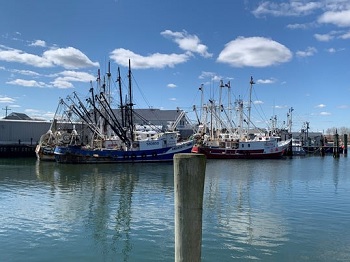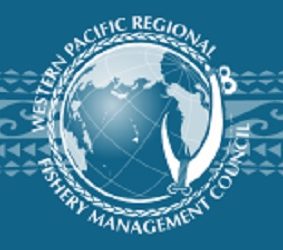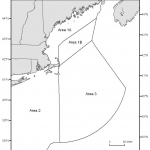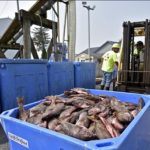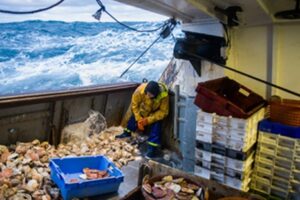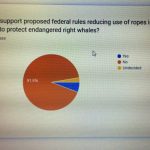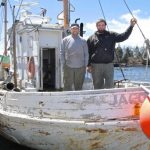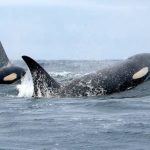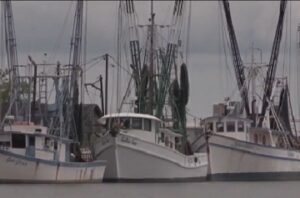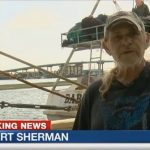Category Archives: Western Pacific

President Donald J. Trump Executive Order Promoting American Seafood Competitiveness and Economic Growth
By the authority vested in me as President by the Constitution and the laws of the United States of America, and in order to strengthen the American economy; improve the competitiveness of American industry; ensure food security; provide environmentally safe and sustainable seafood; support American workers; ensure coordinated, predictable, and transparent Federal actions; and remove unnecessary regulatory burdens, it is hereby ordered as follows: DONALD J. TRUMP, THE WHITE HOUSE, May 7, 2020. >click to read<
President Donald J. Trump Is Working to Secure America’s Seafood Supply Chain and Bring Jobs Home – >click to read< 17:54
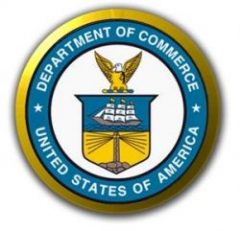
U.S. Department of Commerce Announces Availability of $1.5 Billion in CARES Act Funds to Aid Communities Impacted by the Coronavirus Pandemic
U.S. Secretary of Commerce Wilbur Ross today announced that the Department’s Economic Development Administration (EDA) is now accepting applications from eligible grantees for Coronavirus Aid, Relief, and Economic Security Act (CARES Act) supplemental funds (EDA CARES Act Recovery Assistance) intended to help communities prevent, prepare for, and respond to coronavirus.,, On March 27, 2020, President Donald J. Trump signed the $2 trillion CARES Act into law. The CARES Act provides EDA with $1.5 billion of which $1.467 billion is available for grant making. The remaining funds will be transferred to cover salaries and expenses and oversight activities. >click to read< 12:54

With Coronavirus pandemic ravaging our country, temporary relaxation of fishery regulations is urged to help fishing industry
Thanks to our Senators and Congressmen who worked to get specific aid to the fishing industry, that has been hit particularly hard by the closure of restaurants, where 70 per cent of seafood in this country is consumed. Fishermen and wholesalers have had to adapt on the fly and find other ways to market their product to various degrees of success. The closure of so many vital aspects of our domestic economy will have effects that will still be felt a long time after the Virus is tamed.,, I am requesting that NMFS immediately contact the various management councils and commissions to request that special meetings [webinars] of fishery advisory panels be held to discuss the pro’s and cons of this idea, and what fisheries could benefit.,,, By Jim Lovgren. >click to read< 20:48

Coronavirus: Letter from 200+ US seafood industry stakeholders to Trump Administration
March 24, 2020, Dear President Trump. We write as participants in America’s seafood supply chain, a critical component of the country’s domestic food infrastructure and one of the major economic drivers in our country’s coastal communities and states. Empty restaurants, cafes, and dining halls are a visible reminder of the ongoing, unprecedented public health efforts to blunt the spread of COVID-19. The livelihoods of the chefs, cooks, servers, and other staff are obvious and direct casualties of those government efforts. The economic disruption caused by forced restaurant closures and active encouragement for Americans to “shelter in place,” however, extend far beyond the food service sector. >click to read< 19:37
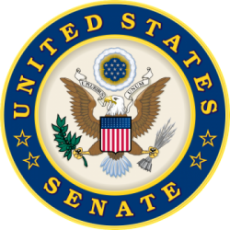
Senate Democrats, Greens Seek Climate Mandates In Federal Stimulus Bills
Senate Democrats and environmentalists want to tack climate change mandates onto proposed federal aid to major airlines and cruise lines reeling from the coronavirus pandemic. In a letter to the House and Senate leadership, eight Senate Democrats said last week that any financial assistance to the travel industry “should be paired with requirements that companies act in a more responsible fashion” by reducing their carbon footprint. “Climate change damages will wreak havoc on a scale even greater than the coronavirus,” said the Friday letter headed by the Center for Biological Diversity. Democrats who signed the letter were Sens. Sheldon Whitehouse of Rhode Island, Martin Heinrich of New Mexico, Jeffrey Merkley of Oregon, Cory A. Booker of New Jersey, Edward Markey of Massachusetts, Richard Blumenthal of Connecticut, Tina Smith of Minnesota and Debbie Stabenow of Michigan. >click to read< 10:12
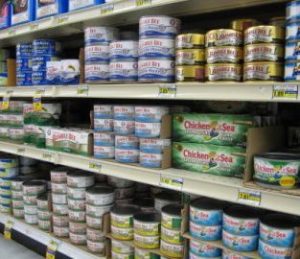
Coronavirus: As Canned Tuna Fly Off Shelves, Operations of US Boats Are Compromised
Consumers bracing against Covid-19 have raised demands not only for health and safety products but also for many food staples, including tuna. StarKist Samoa, located in the US Territory of American Samoa, supplies tuna for the US market. “The StarKist Samoa operation relies on the US tuna fishermen, and direct fish deliveries to the cannery are a major component of our business model,” said StarKist Samoa in a statement today. “We have seen an increase in sales that has been attributed to the Covid-19 impact, and we are doing our best to keep up with the demand. >click to read< 10:35
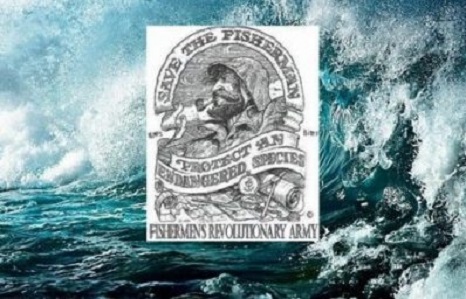
Tell Your Congressmen and Senators: Our US Fishing Industry Faces The Coronavirus Disaster
With the Coronavirus being spread around the world and nations reacting to this threat in many different ways, from doing nothing, to closing the borders and full quarantines, the unintended effects of such government actions have yet to be fully felt. Granted the stock market has lost 30% in value in just 3 weeks time, the average American really doesn’t feel that unless he is living on his investment returns. With the closing of schools, and restaurants and any places of public gatherings an enormous crisis is being created because many people are being put out of work and some of them may not have a business to come back to when the crisis is over. The Coronavirus may topple an empire if we let it. >click to read< 06:17
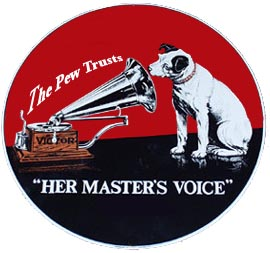
“Looking Back”: The Keep Fishermen Fishing Rally
Measured by any meaningful criteria the Keep Fishermen Fishing rally held on the steps of the Capitol on March 21 was a stunning success. It was attended by thousands of fishermen from as far away as Alaska, twenty one Senators and Members of the House of Representatives, and at least a half a dozen other VIPs made room in their busy schedules to come out and address the people who attended. From the most conservative of the conservatives to the most liberal of the liberals, these politically divergent speakers had one message; fix the Magnuson Act and bring back the balance between conservation and harvest. For the second time at the national level recreational and commercial fishermen – no matter what fisheries they participated in, no matter what their disagreements on allocation or lesser issues were, and no matter where they were from – were standing together and demanding a return to the original intent of the Magnuson Act;,,, >click to read< 08:09
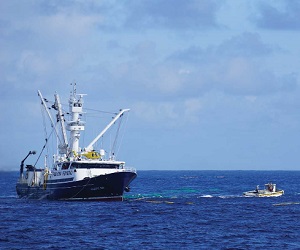
A year in the life of a tuna boat helicopter pilot
I had 25 minutes of fuel on board and no place to land except our boat or the sea. As I got closer, I could clearly see the boat heaving in the swell. My eyes were wide as I flew the approach and, with concentration levels dialled up, I stuck it to the pad as trained. My mechanic ran out to strap the machine down. He got the first one on and I rolled the throttle back to ground idle. I could taste the sea spray off the bow. I was flying off tuna boats and loving it! more. >click to read< 13:10
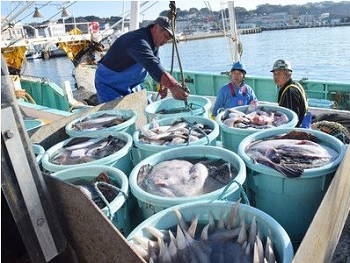
Fukushima Fishermen Aim to Expand Catches for Survival
Fishery operators in Fukushima Prefecture, home to the disaster-crippled Fukushima No. 1 nuclear plant, are set to expand their catches, aiming to shore up a local fishing industry that has struggled with unfounded rumors about radiation contamination. There are concerns that an expansion of catches may trigger a price collapse but fears of a possible decline of the industry are seen outweighing such considerations. photo’s, more>click to read< 14:53
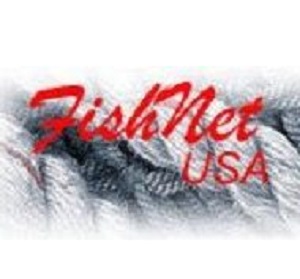
“With a bit of prodding by some valued colleagues”, we will be launching a series “Looking Back”
A few of us were conversing, and the topic of resurrecting’s some of the posts, pages, and information of the past to gauge the changes and improvement’s achieved though the past few decades of fishery management and sacrifice, or if there have been any improvements at all! Nils Stolpe, Jim Lovgren, and I thought perhaps these various posts and articles would give an indication of how the domestic fishing is doing! Both of these gentlemen are exceptional writers, with exceptional knowledge of the domestic fishing industry and they have been featured here many times. We hope people revisit these articles, and for many of the newer fishermen in the industry today, this may be the first exposure to this interesting, and valuable info, and other stories. We’ll kick it off with “With a bit of prodding by some valued colleagues,” >click to read< 13:07

Managing A Lucrative Resource In The Face Of Climate Change
Conservationists and commercial fishing industry leaders came together on the need to restructure the Magnuson-Stevens Fishery Conservation and Management Act to adequately consider climate impacts during a panel discussion in Honolulu. But that was about it for the common ground they found during the last stop on U.S. Rep. Jared Huffman’s nationwide “listening tour” on reforming the MSA. The panelists, which also included state and federal officials, had diverging views on the effectiveness of marine national monuments like Papahanaumokuakea and whether the eight regional councils that the law set up to manage fishery resources nationally should have designated seats to ensure representation from environmental, indigenous and scientific interests as well as the commercial fishing industry. >click to read< 10:38
What ever happened to HR-200? I have no interest in these people reauthorizing anything.
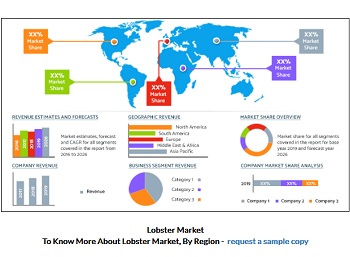
Global Lobster Market Report 2020
The recently published market intelligence report on the Global Lobster Market offers an in-depth analysis of segments and sub-segments in the regional and international Lobster market. The research highlights underlying factors such as the impact of restraints, drivers, and macro indicators on the regional and global Lobster market over the short as well as long period of time. Through a detailed presentation of the data, valuable information of forecast, trends, and dollar values of global Lobster market is offered. The Lobster industry has also suffered a certain impact, but still maintained a relatively optimistic growth,,, >click to read< 17:07
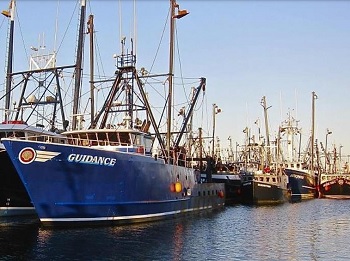
New Bedford Remains Top Money Port in the United States
Scallops continue to be king in the Port of New Bedford. The U.S. Commerce Department on Friday released its 2018 report on commercial fishing. For the 19th consecutive year, the Port of New Bedford was the most lucrative port in the nation, with its total catch of seafood valued at $431 million. Dutch Harbor, Alaska landed the most fish for the 22nd consecutive year, more than 763 million pounds. >click to read< 10:10
Fisheries of the U.S. Report for 2018 Shows Strong Year for Fishermen – According to the Fisheries of the United States report, which is compiled by NOAA using data and analysis not immediately available at the same end of a fishing year, U.S. highest value species groups in 2018 included lobster ($684 million), crabs ($645 million), salmon ($598 million), scallops ($541 million), and shrimp ($496 million). >click to read<
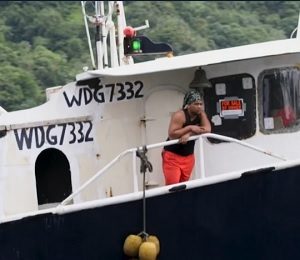
Video: A sea of obstacles imperil American Samoa’s tuna industry
Locally based fishermen who supply the lone Starkist tuna cannery in American Samoa are facing a perfect storm of obstacles that are threatening their economic survival. A battle is now on in the U.S. territory to fend off those looming challenges, from rising fuel costs to international competition.,, Carlos Sanchez is a veteran longliner, but he’s in the process of giving it up. “All my boats are for sale. I have seven boats, and they are for sale.” You have no hope for the industry? “We have no help for the industry!…” Video, >click to read< 08:43
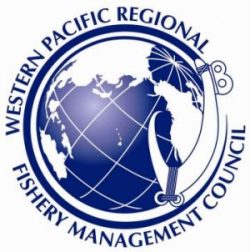
WPFMC: Notice of 2020 Public Meetings
The Western Pacific Regional Fishery Management Council announces the following public meetings on fisheries management in offshore waters of Hawai’i, American Samoa, Guam, Commonwealth of the Northern Mariana Islands (CNMI) and Pacific Remote Island Areas (PRIAs). Unless otherwise noted, the meetings will be held at the Council office, 1164 Bishop St., Suite 1400, Honolulu. For more information and complete agendas, go to www.wpcouncil.org, email [email protected], fax (808) 522-8226 or phone (808) 522-8220. All times listed are local island times. >click to read< 11:01
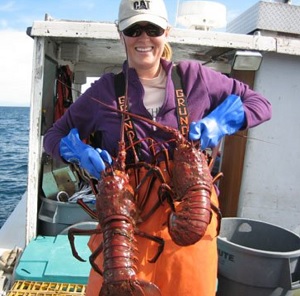
Coronavirus: With China’s Borders Closed to Imported Live Seafood, Local Fishermen Feel the Pinch
As the number of the sick and the dead continue to rise alarmingly in China, the economic effects of the 2019 novel coronavirus outbreak were felt in the Santa Barbara Harbor.,,, “Santa Barbara brings in $4 million to $5 million a season,” said Chris Voss, president of Commercial Fishermen of Santa Barbara. The prized crustacean had been stockpiled for China’s late January Lunar New Year festivities, he said, from New England to Australia. When China closed its borders to live-animal foodstuffs about 10 days ago, everyone was hit. >click to read< 10:21
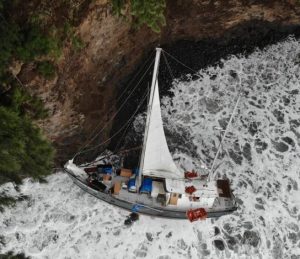
Coast Guard, responders prepare to move fishing vessel grounded in Hilo Bay
Responders are working to remove potential pollutants from the 63-foot fishing vessel, Midway Island, currently aground off Hilo. The Coast Guard is working with the Department of Land and Natural Resources and contractor personnel to mitigate the potential pollution threat from the vessel. Reportedly, a maximum potential of 1,800 gallons of diesel and two marine batteries are aboard. >click to read<14:50
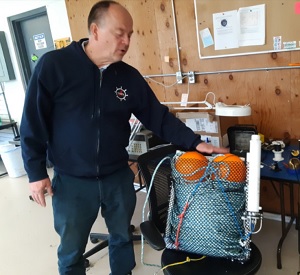
Ropeless Fishing! Marina firm develops tech that could help whale entanglement
The Ropeless Fisher System, or pop-up system, contains a netting device holding buoys that are attached to the crab pot. When the fishermen on the surface are ready to check the traps, they use a simple app that triggers a device that sends out sonar waves that activates a release mechanism and the buoys pop up to the surface carrying the connecting rope. Marco Flagg, the CEO of Desert Star, said his technology is already being deployed in crab and lobster fisheries along the eastern U.S. coast, Nova Scotia and New South Wales, Australia. >click to read< >click to read archived ropeless fishing articles< 11:16

Wuhan Huanan Seafood Market May Not Be Origin Of Coronavirus That Infected Over 20 Countries
When news of the mysterious coronavirus broke out, all fingers were pointing to Wuhan Huanan Seafood Market as the culprit. However, some studies are showing that the condemned market may not be the source of the virus. Instead, it’s possible that a person was infected outside of the market, but later brought the virus there. >click to read< 14:27
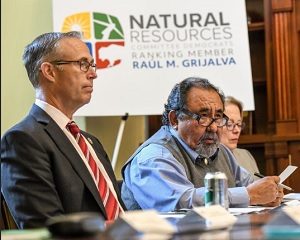
Full Committee Markup, Legislative Hearing on Sustainable Fisheries
The Committee on Natural Resources will hold a markup on Wednesday, Jan. 15. On Tuesday, Jan. 14, our Water, Oceans, and Wildlife Subcommittee will hold a legislative hearing on six bills that make our oceans and fisheries more sustainable in the face of manmade threats. The Committee’s full schedule and witness lists are available below. As with all hearings and markups, these events are open to media and the public. >click to read< 07:37

Fishery FUNDD Act: Reps. Palazzo and Huffman Introduce Bipartisan Bill to Improve Federal Fisheries Disaster Relief Program
Representatives Steven Palazzo (MS-4) and Jared Huffman (CA-2) have introduced the Fishery Failures: Urgently Needed Disaster Declarations Act (Fishery FUNDD Act), which will improve the federal fishery disaster process and ensure more timely disaster relief for impacted communities. The Fishery FUNDD Act would set a timeline for the federal government to respond to a fishery disaster request, and set a timeline for disbursal of appropriated funds following a disaster. >click to read< 14:05
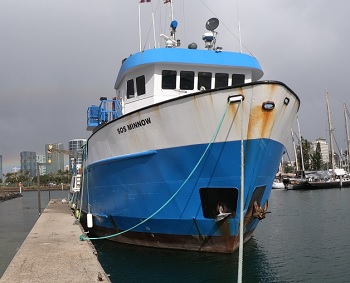
Illegally moored 112-foot-long fishing boat could be set for the auction block
The Department of Land and Natural Resources (DLNR) will conduct a public auction of a 112 foot-long, twin-engine, fishing boat if the owner does not remove the vessel within one week. The SOS Minnow pulled into a slip at the Ala Wai Small Boat Harbor on Nov. 22, 2019, after its owner said he was having a medical emergency. The boat is described as being in very good condition. If the current owner claims it before the Wednesday auction, he’ll need to pay impound fees, illegal mooring fees, and for the cost of legal ads, estimated to total $1000.00. 7 photo’s, >click to read< 22:59

Sam Parisi: Its 2020 and time to move this industry forward!
Here we are again, at the end of the year, and decade for that matter, as 2019 is ending, and its time to move forward. As some of my fellow Fisherynation readers know, I am motivated to try improving the U.S. fishing industry for our country’s working U.S. fishermen. I have reached out to my Senators Markey, and Warren, and also to Congressman Moulton to help draft a US Fish Bill. This is an opportunity for everyone in this ridiculously diverse industry from sea urchin, and scallop divers, to clam dredgers, and every faction of the industry, traditional, and exotic, to have personal input into a bill built for you, built by you, and built by your fellow industry members. >click to read< 16:50

Sam Parisi Sends Holiday Greetings to all Fishermen, Everywhere. Merry Christmas!
To all my fellow readers, and fellow contributors to Fisherynation.com. My family and I wish all of you and your family’s a Merry Christmas, and a safe and prosperous New Year. We are grateful for the blessings of the day, and look forward to a better fishing industry next year. To all of you who are still trying to make a living fishing, you are very important to us, and our economy. We need to keep this industry alive. I will continue to fight for you, and the industry. I am offering a special tribute to those fisherman that were lost at sea this year. God is with you and we will always remember you and your hard work at sea. Forever. Thank You and Merry Christmas! Sam Parisi, Gloucester, Mass. 16:44
Blackmore’s Night – I saw three ships come sailing in On Christmas Day; >click to play<
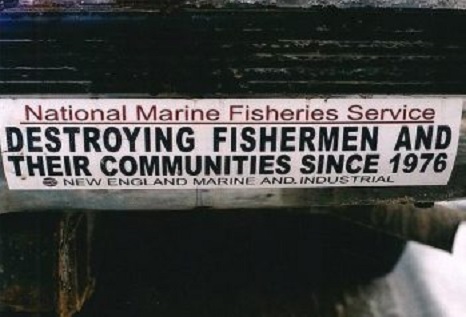
Have you had enough?
Since its inception in 1976, the agency charged with managing our fisheries, the NMFS, has overseen their decline, a decline which in most cases was a product of their own machinations.Usually most ideas the government has for managing our lives are well intended but terribly executed, this was a prime example. NMFS, for all that it was intended to be and do for our fisheries, has failed and in some cases, this wasn’t by mistake, but by design. By John Rice, >click to read< , and the comment venue is open there! 13:37






